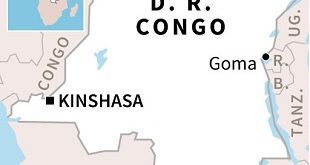Secondly, being poor means the state cannot afford to provide a large basket of public goods and services to all citizens to the quality and quantity desired. Elites act as a bridge between the leaders and their co-ethnics. It is cheaper to win the whole of Karamoja by incorporating a few of its powerful elites in government than delivering there roads, electricity, schools, health facilities etc. For a poor country, patronage for the elite is therefore not only a cost-efficient and cost-effective strategy of building electoral and governing coalition, it is most critically the only affordable option given the cost of public goods and services.
Thus what seems a socially and economically dysfunctional public policy (privileges for a few elites instead of public goods and services for the majority of citizens) is actually rational and politically profitable. This also means that the more you deepen democracy in a poor and ethnically diverse peasant society, the more you entrench the privileges of a few elites. But this can also happens in rich democracies where well-organised special interests can usurp public policy to their advantage at the expense of the masses.
Take the healthcare system of the USA as an example. The country spends 17% of its GDP on healthcare compared to the UK 9%, Japan 10%, France 11.5% and Singapore 5%. Yet on health outcomes like life expectancy, infant mortality etc., these countries are better off than the U.S. Why? In the USA, the health industry’s formidable lobbying machine ensures that laws in Washington DC are made with the interests of healthcare providers in mind: insurance and pharmaceutical companies, then associations representing doctors, hospitals, nursing homes etc. These spend billions of dollars lobbying Congress for favourable policies at the expense of the voting majority.
The lesson is that democratic competition, which is a very good thing, just like free markets, does not automatically guarantee the voter (or consumer) gets the best service. In Uganda’s case (as America’s healthcare system shows), it shifts resources to a minority that is best organised and articulate. So next time you see sirens pushing you off the road in Kampala’s rush hour, while your auntie has no access to an ambulance, know that such crass exhibition of power is the stuff that gets politicians elected in our villages.
****
 The Independent Uganda: You get the Truth we Pay the Price
The Independent Uganda: You get the Truth we Pay the Price



I am surprised that no one has responded to this track yet – Or should I?????
But any way, the truth is that Uganda’s (and actually most of the entire sub Saharan Africa’s) elite priorities are upside down! It is not just that governments and their leaders are incompetent. Most of us have opted to focus on things and activities that task us least in the short term, bring more immediate short term gains, and seem to put us in privileged positions relative to our fellow countrymen/neighbours. Thus, we have failed to question the legitimacy of those privileges, failed to correct the inappropriate skill base and distribution in our countries, and driven anyone we care for (e.g in form of offspring/dependents/friends/relatives etc) to imitate us. This has led to a severe shortage of essential technical survival skills in our region! And the situation gets only worse even as those who had tried to advance earlier (SAfr, Nigeria, Zimbabwe among others) deskill in the new ‘get-rich quick’ craze of politicking.
Why should we have so many fuel guzzlers at MoH head office when we cannot even maintain the ridiculously ‘single’ ambulance at a rural hospital? It is simply that we, the elite are at head office – and are oblivious of our real needs and obligations even there at head office.
Why is even that single ambulance not running? – It is that first there is a lack of preventive maint (please not corrective) skills at the driver and second, at the hospital administration levels.
We as a people have opted to reward and even ‘worship’ ‘good to have’ but non critical nor essential, parasitic activities like comedy, music, politics, etc., and ignored/despised the more useful but taxing activities requiring use of both mental and limb skills (i.e. those that were meant to distinguish us as humans from other creatures). Then why should we be lamenting on this melodrama we find ourselves in?
Friends, I may have been harsh and brutal in this response (and I am sorry for that) but we really need to reexamine our priorities on urgent basis – otherwise even the structures (and medicines) we are spending billions to put up or source will go to ruins at the risk of mortgaging our continent.
Dr. Eng. Kant Ateenyi
1.As Human beings grow older,they begin to get many health complications like pressure,diabetes the question is how do we avoid them?
2.M7 has done alot in the transformation of the Social and Economic sector in Uganda you can actually spend no money if you went for medical care in any government owned hospital in Uganda.
3.There are scanners in most supermarkets in Uganda to detect items that are being shop lifted cant government install scanners in hospitals to detect stolen drugs?
4. Government should set an issuance scheme to cater for Ugandans with hereditary diseases like sickle cell.
5.@ Dr.Ateenyi ;the likes of Rajab,Rwasubutare and their wives are still analyzing Rema’s Gomesi.
6. Most of the cars parked at Mulago belong to donor projects otherwise why would government buy all those cars?
7.Most of the diseases in Uganda can be prevented like HIV,Malaria but surprisingly they are the ones causing alot of death.
akcdna